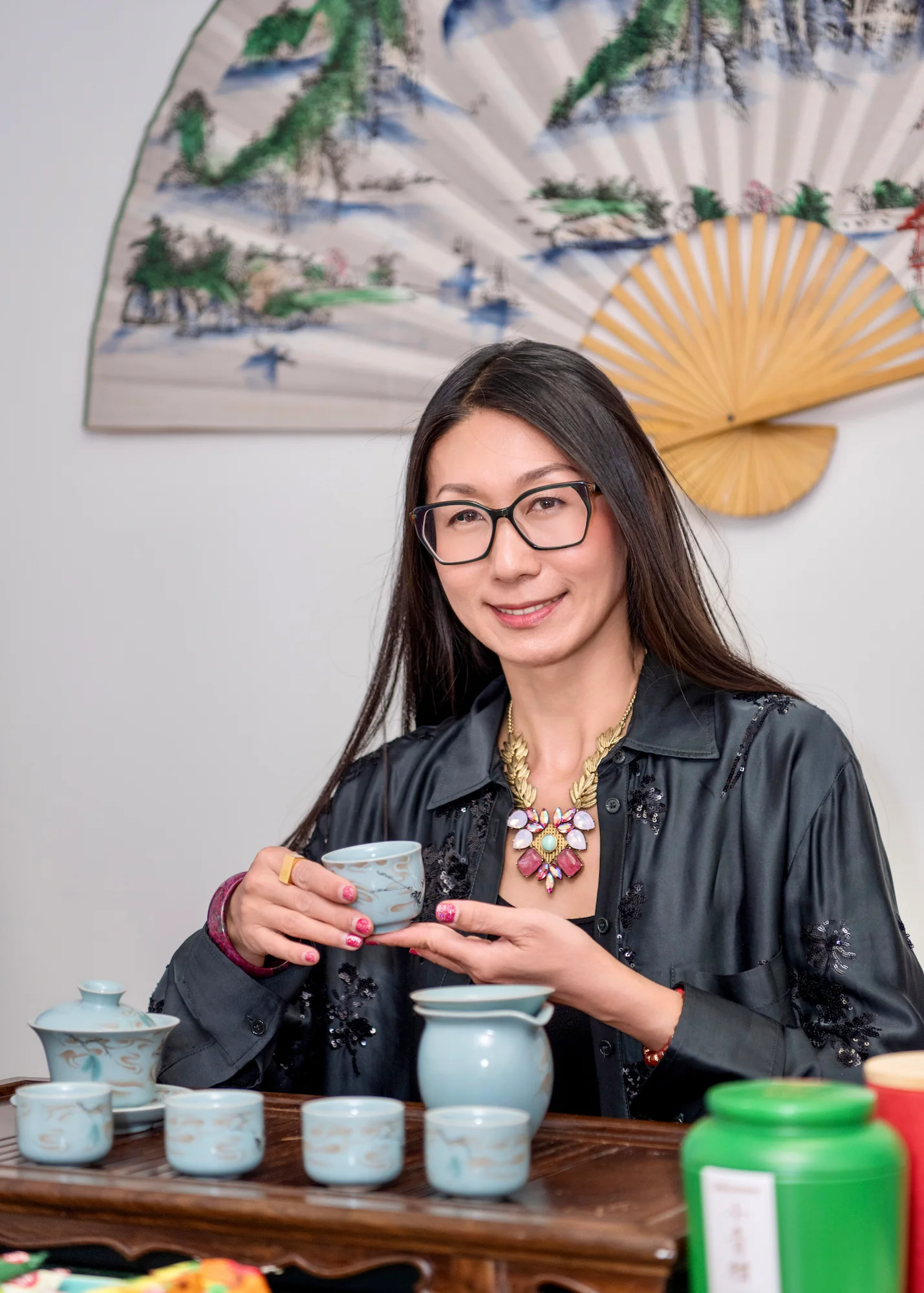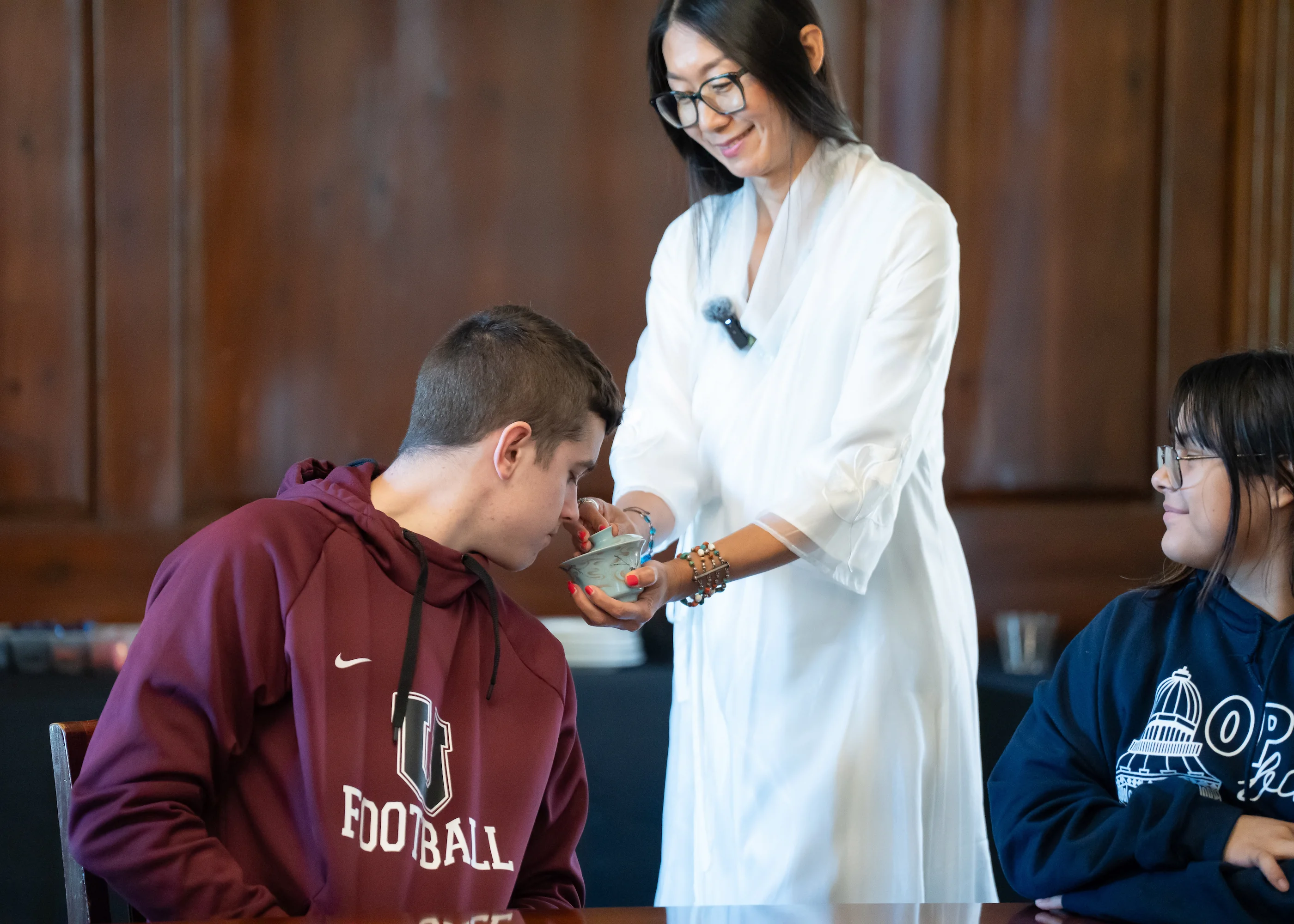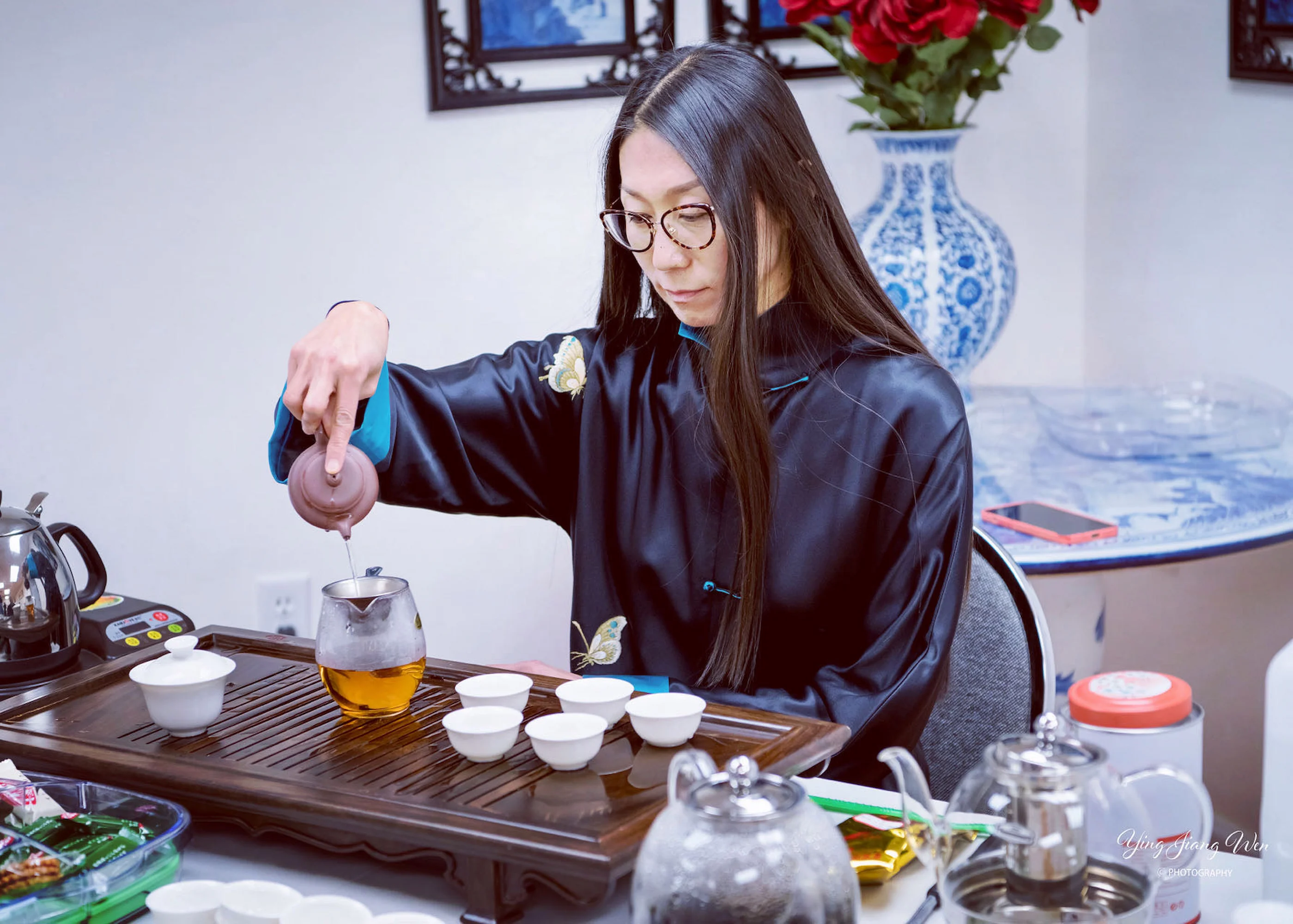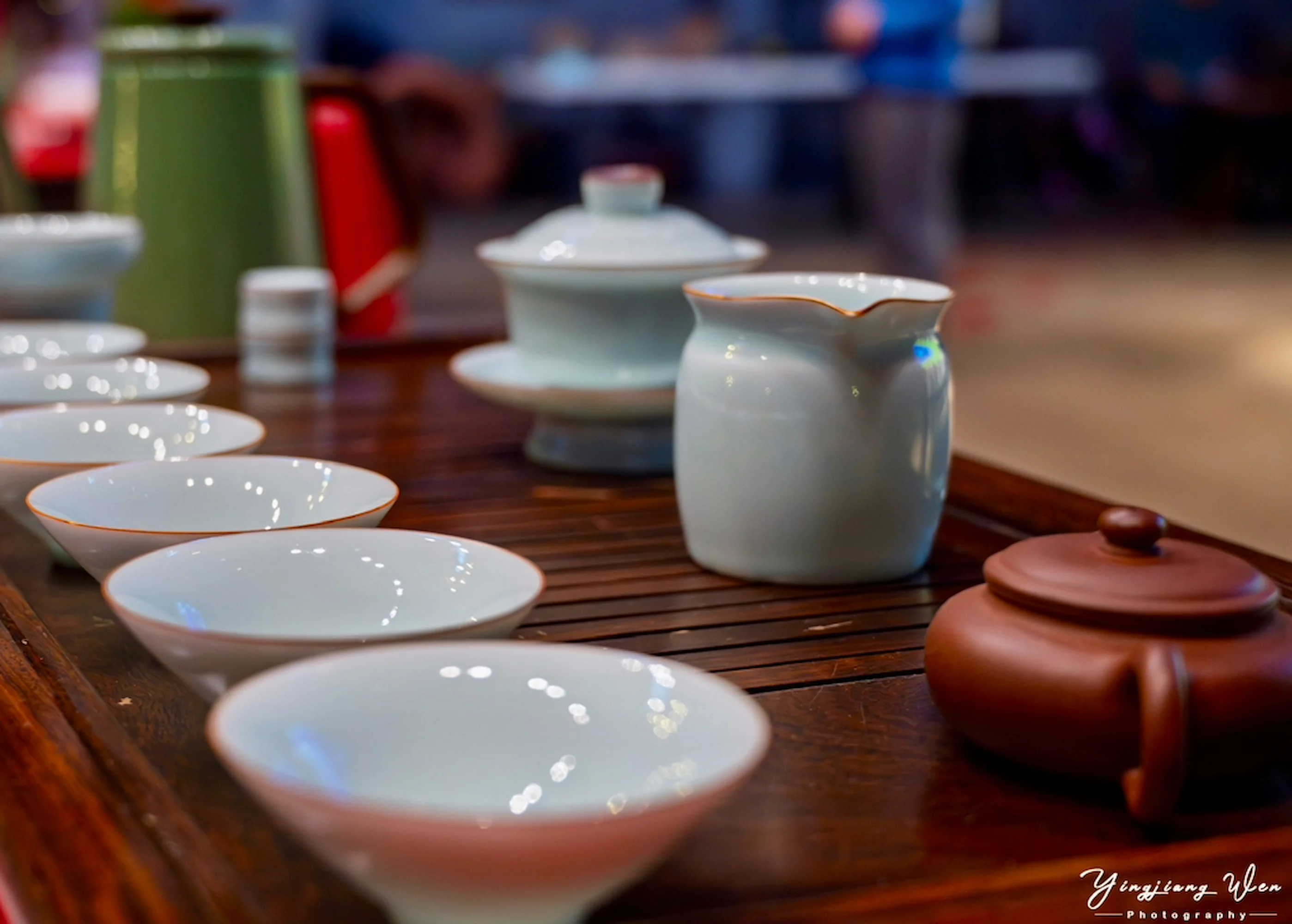AANY Featured Artist: Wei Qin
Wei Qin began studying the art of Tea Ceremony as an adult in Shanghai, and it quickly became a lifelong passion. After moving to the Capital Region, she introduced a Tea Ceremony program at the Chinese Community Center, where guests have enjoyed memorable tea tastings and cultural experiences. Wei has also brought Tea Ceremony to the stage, integrating it into performing arts programs that blend tradition with artistic expression. Her performances have been featured at venues such as Union College, where she shares the beauty, grace, and mindfulness of this ancient tradition with diverse audiences.

Artist & Tea Ceremony Performer


